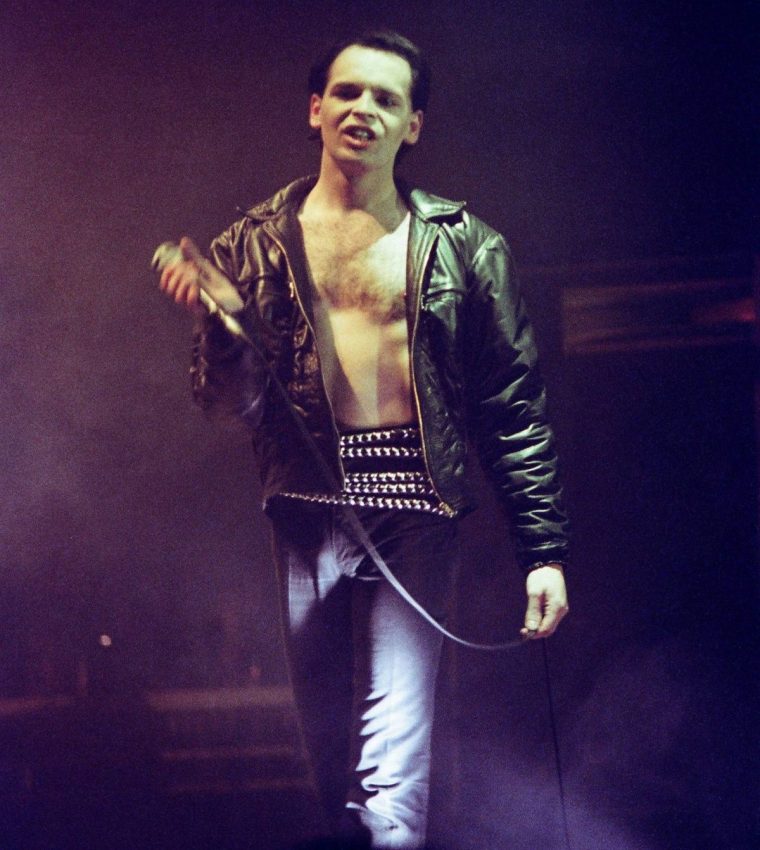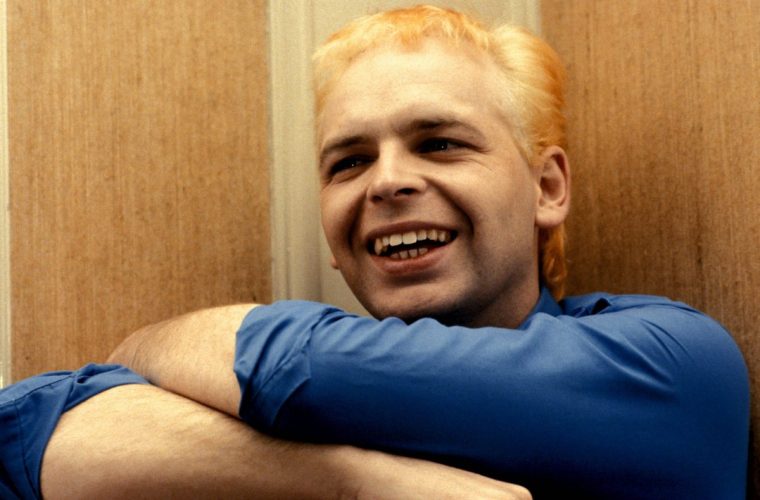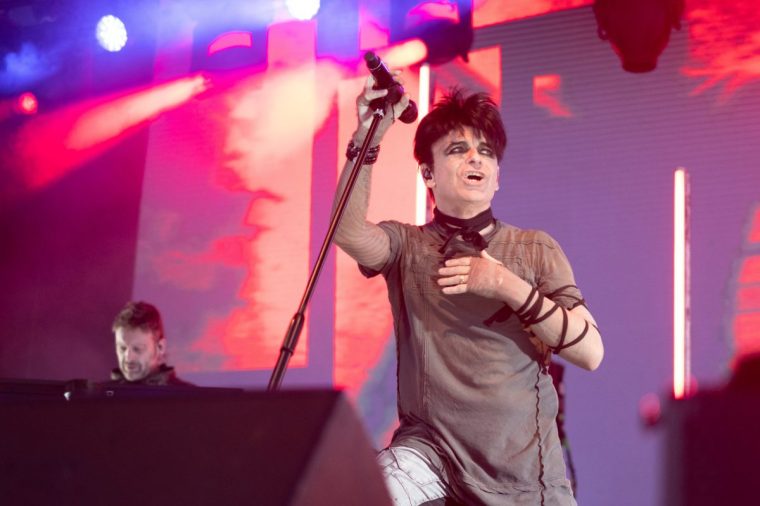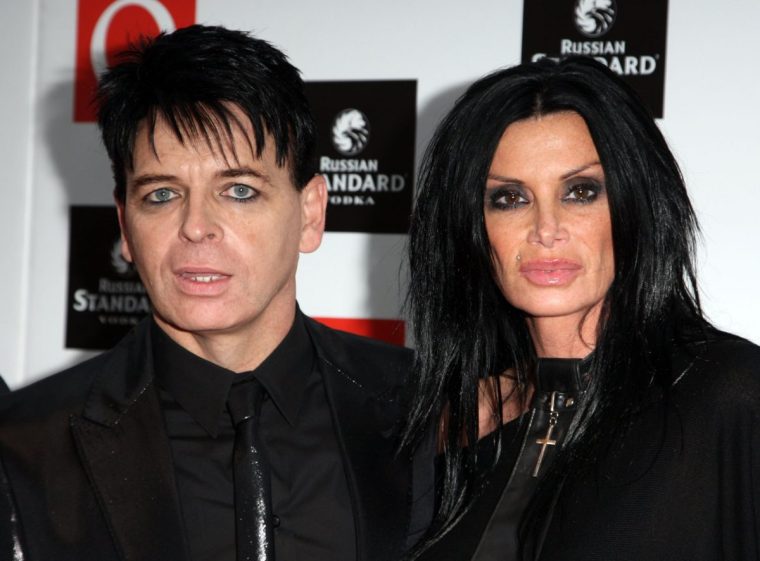Gary Numan’s 2022 concert at Wembley Arena had been 41 years in the making. In April 1981, at the peak of his powers, the synthpop innovator – who’d gatecrashed the charts with three number-one albums, plus hits “Are ‘Friends’ Electric?” and “Cars”, retired from live performance, with three “farewell” shows at the same London venue. At 23, he’d found the intensity of unexpected fame and a strangely vitriolic press tough to deal with.
But even as the curtain was falling on his touring career, he was regretting his decision. “On the final night I just remember being really sad,” the now 67-year-old says on video call from his home in LA. He ducked out of the aftershow early. “I went back and sat on the stage on my own. I looked out at this empty place and I remember saying to myself: ‘What the f**k have you done?’”
Numan quickly changed his mind – within 18 months he was touring again – but he says that “making a big deal of retiring was a terrible mistake”, compounded by his swift return. His career took such a hit, it never truly recovered. “I don’t think I fully realised then how much damage I’d done,” he adds. “There was a lot of goodwill that I unwittingly damaged.” He had left himself isolated from the industry – labels, promoters, PRs – as well as the press. (“Even if they had been like, ‘Good riddance.’”)
But more importantly, he upset fans. “The vast majority of the fans felt let down. They thought I’d come on, made a shit-tonne of money, and then just f**ked off.” The following years were lean as the hits dried up – his 1995 single “Absolution” sold just 3,000 copies – and the gigs got smaller.

Numan made playing again at Wembley Arena a life mission, a symbol of him restoring his career and correcting a costly mistake. He says that over the years, “I’d been very obsessed about trying to get back to where I was.” So imagine his joy when it finally happened: Numan, then 64, headlined Wembley Arena off the back of a late-career renaissance and two consecutive number-two albums, 2017’s Savage (Songs from a Broken World) and 2021’s Intruder. The triumph is documented with a new live album, A Perfect Circle: Live, and Blu-ray video of the concert. “For other people, doing Wembley Arena would be a warm-up gig for a stadium,” he says. “For me, it was everything.”
It was a long slog back to Wembley. Numan, genuine and open in conversation, stands by his initial decision to take a break. “The reasons for stopping in the first place were actually sincere,” he says. “I really hadn’t taken to the whole fame thing. It was really mad. I was very young – I didn’t handle it well, and my Asperger’s was raging back then.”
Born Gary Webb in Wraysbury, Berkshire, Numan grew up near Heathrow airport and later became a qualified pilot. At 15, a child psychiatrist theorised Numan was on the autism spectrum and gave him anti-anxiety medication due to his difficulties at school; he was expelled twice (one teacher called him “the most disruptive pupil I’ve had in 21 years of teaching”). His social awkwardness left him deeply unprepared for the warp-speed success.
“For someone with autism it was all so weird. And it’s not like I was worldly. I still lived at home with my mum and dad.”
It didn’t help that the press could be vicious about Numan’s persona – sleek, detached and slightly alien to mask his shyness – and synth-heavy machine music which had the shock of the new, confusing and riling the rock-orientated media. His early classic albums – Tubeway Army’s Replicas and his first solo albums The Pleasure Principle and Telekon – were full of Numan’s social dislocation, distrust of humanity and love of sci-fi, sometimes deceptively so: “Are ‘Friends’ Electric?”, recorded with his band Tubeway Army, was certainly the first number-one hit about a robot prostitute.

“You can’t quite figure out what you’ve done that warrants that,” he says of the press. “You’ve just written some songs that a lot of people liked.” It left him convincing himself he’d been lucky. He explains that “Are ‘Friends’ Electric?” was two songs bolted together. “I just stumbled on that.” And “Cars” was just a doodle, the first thing he played when he bought a bass. “So when you think your two biggest things were just lucky, you don’t feel like there’s anything special about you.”
He said within a year he’d set his sights on returning to Wembley. But chasing his tail in the 80s, he took bad advice from managers and A&R teams. “I lost my own sense of direction, got more and more moulded by what other people thought I should be doing. And I’m really ashamed of that.”
Things reached a creative low with 1992’s Machine and Soul (“which I really didn’t like”). But the same year, he met his wife, Gemma O’Neill, a Numan fan who not only helped him with his social anxiety but played a huge part in extracting him from his career rut. “Her opinion was that I’d taken out all the things that made me special in the first place. I didn’t get it. I thought because I’d brought in better musicians it was making the albums better. So we argued about that for a couple of years, but I eventually saw what she meant. She helped me go back to making music for the love of it.” Sacrifice, his 1994 album, reinvigorated Numan with a new industrial sound.

But Wembley still remained a long way off, even during moments when, culturally at least, his stock was high. In the mid-90s, industrial rock acts like Nine Inch Nails and Marilyn Manson were hailing Numan’s influence; then in the early noughties he enjoyed what he calls “proxy success” when his songs were sampled on massive hits by Sugababes (“Freak Like Me”) and Basement Jaxx (“Where’s Your Head At”); he also had a cameo on Noel Fielding’s hip surrealist sitcom The Mighty Boosh (Fielding’s character Vince was a Numan superfan.)
“That all had a really positive effect. They gave me a credibility that I never had before. But they certainly didn’t translate into record sales.” Why not? “The obvious thing would be that people didn’t like the music,” he says matter-of-factly.
But every album, he says, was performing a little bit better than the last. Then when Intruder reached number two came the call from his agent that Wembley had been booked. “Yeah, best thing ever,” he says with a wide smile. “But then you’re shitting your pants that it’s not going to sell.”
The night was a celebration – eventually. As shown on 2022’s candid documentary Resurrection, Numan had a panic attack an hour before stage time: flooded with emotion, he was consoled by Gemma – “I got overwhelmed by the enormity of what it was to me.” He says he actually had another panic attack off camera, when he was comforted by his father. “My dad’s idea of a pep talk is to pat you on the back and go, ‘You’ll be alright,’” he laughs. “But it actually worked, like when I was kid.”

But he said all fears went away when he stepped onto the stage. “It’s very difficult to put into words. I guess when a Formula 1 driver wins a world championship, and they’re in their car and they’re crying, because it’s that release of energy, that emotion that you’ve kept bottled. Suddenly you’re there and it’s real, and you walk out and the noise is just stunning, just the best feeling in the world. And I absolutely milked it,” he laughs. “I milked it the whole night.”
Numan was full of gratitude as he and his band powered though a highly charged career-spanning set. For a finale of “Are ‘Friends’ Electric?” he was joined by his three daughters, Raven, Persia and Echo. “I remember stepping backwards just in front of the rider behind me, so I could see them and all the people,” he smiles. “That was probably the best moment, actually.” He says the euphoria of the moment stayed with him for weeks. “It took quite a while for me to come back down from that. I was feeling pretty proud of myself for quite some time.”
It continues to go well for Numan. Last month he made his belated debut at Glastonbury on The Park Stage, and having reaffirmed his position, he’s quietly set his sights on reaching number one again. He doesn’t think it’s realistic with a live album (“maybe if I was Lady Gaga”) but perhaps with his next studio album.
“It’s sort of a distant dream. It would be amazing. I think if I was to get another number one album, I would stop, end it on the high spot. But it doesn’t bother me like getting back to Wembley bothered me,” he says. “That was an actual meaningful life ambition. It was a magical night.”
‘A Perfect Circle: Live‘ is out now
